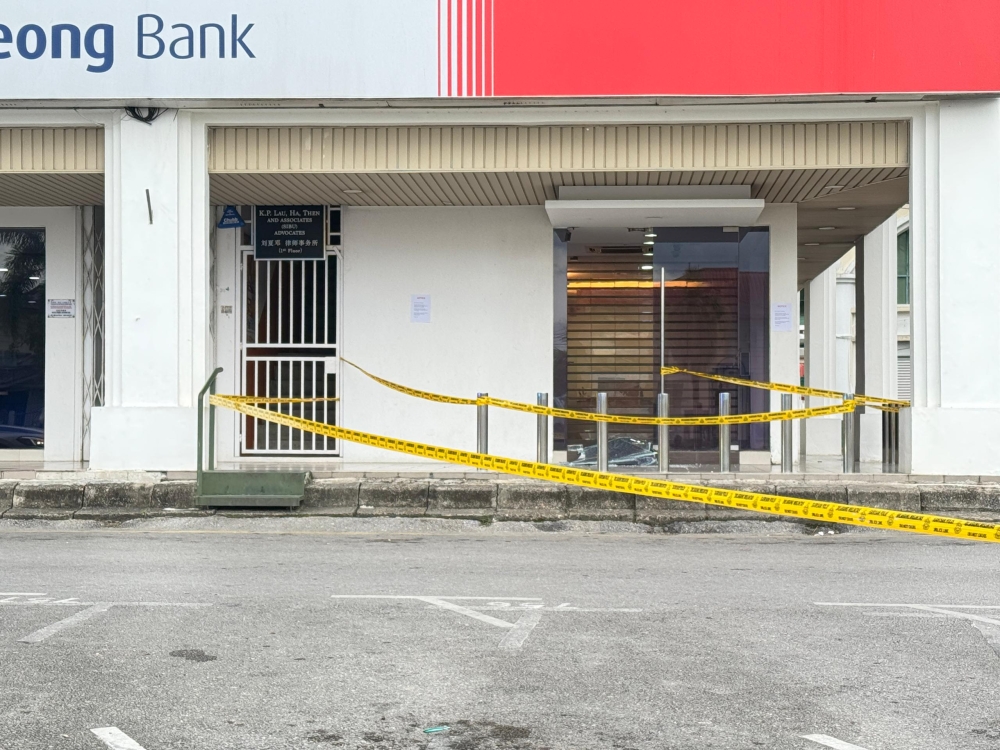KUALA LUMPUR, Dec 29 — Floods which wreaked havoc in eight states including Selangor and several districts in Pahang and Negri Sembilan recently, can have a life-altering impact on the individuals and families fortunate enough to survive them.
Malaysia’s worst flooding in years, which displaced thousands of people from their homes, damaged properties and killed 48 people as of Monday, can have deep impacts on the victims mentally and emotionally.
According to the Psychiatric Counsellor & Director of Clinical Centre of Excellence at the Management and Science University (MSU) Prof Dr Muhammad Najib Mohamad Alwi, the psychological reaction to the catastrophic disaster would greatly depend on an individual’s resilience, that is his or her ability to bounce back and return to normal.
He said, some flood victims who experienced loss of property and loss of their families, can still be calm amidst the calamity and were already back on their feet, including repairing their damaged homes and vehicles.
However, in comparison, some individuals are not even ready for a minor disruption, such as being stranded by the roadside, let alone a major disaster, causing them to experience stress or even frustration.
“Other factors which will determine the psychological reaction of an individual towards such a calamity include past experience with disasters, self-efficacy amid pressure, parties responsible for the disaster and their crisis preparedness.
“For those who have had similar experiences, the trauma and memories may be too overwhelming and rather than moving forward, they remain stuck in the trauma. When this happens, the individual experiences an acute stress reaction or acute stress disorder. Or, perhaps, their past experiences have made them calmer, stronger and are prepared for any eventualities,” he said.
“Those with strong resilience are less likely to be impacted by the massive floods and can immediately adapt to the current situation and seek the best solutions brought on by the floods,” he told Bernama recently.
Natural factors are easily acceptable
Dr Muhammad Najib also said that during or in the aftermath of a disaster, there is a tendency for an individual to point an accusing finger at certain quarters as portrayed in the social media.
The blame game on who should be responsible for the recent devastating floods plays a crucial role in determining the psychological impact of disasters on individuals.
He said that based on a psychological reaction study on disasters, an incident which is seen as being caused by environmental factors (natural causes) are relatively easily acceptable by victims compared to disasters which are perceived as deliberate or due to the faults or the insensitive attitude of certain quarters.
“According to several other studies, if a disaster is considered inevitable, such as the flooding in the east coast of the peninsula during the annual monsoon season, the pyschological impact will be minimal.
“On the other hand, when a massive flooding takes place in non-flood-prone areas and the victims believe that the ordeal is not attributed to natural causes, but due to lack of government monitoring towards excess logging activities and haphazard unplanned development, the effects of anger and pressure faced may worsen.
“However, not everyone, who is exposed to disasters will feel the impact psychologically. As an example, my joint study with my colleagues on Sabah earthquake victims in 2015 found that about 54 per cent of victims faced pyschological effects and after almost five months, the impact is reduced to about eight per cent only,” he said.
According to Dr Muhammad Najib, a study on floods in Terengganu in 2014 showed that the disaster preparedness including the ability to adapt to new situations, the social support from family members and joint collective effort from the community have greatly reduced the psychological impacts of the people from the disaster, he said.
Emotional support, expert help crucial
When a natural disaster happens, victims in the line of fire can lose their loved ones, their homes, and all of their property.
In the midst of emotional turmoil, words of comfort from family and close friends are generally appreciated. Emotional support by active listening can help reduce their stress, and the people should offer help in their hour of need.
“Assistance can be extended in the form of food, place to stay, clothings, and so forth, and try to help them get in touch with their families and close friends if communication lines are cut off (due to floods). Besides that, avoid giving rhetoric statements such as ‘At least you’re still alive’, ‘I’m surprised that you’re still alive’, ‘this is all kifarah (karma), ‘ ‘may all your sins....’
“This does not mean that the statements are wrong but in the current situation, it may not be suitable as the victims need time to accept the tragedy that has befallen them,” he said.
Dr Muhammad Najib however said, if the victim shows extreme anxiety symptoms such as screaming and prolonged or uncontrollable crying, immediate help should be given to them by trained volunteers such as counsellors, clinical psychologists or psychiatrists.
So far, a total of 872 volunteer counsellors registered with the Women, Family and Community Development Ministry have been deployed to seven flood-hit states, according to a Bernama report on Dec 23.
Some of the psychological consequences of stress include acute stress disorder (ASD), post-traumatic stress disorder (PTSD) and adjustment disorder (AD).
“ASD shares similar characteristics as PTSD. The main symptoms include flashbacks, upsetting nightmares, avoiding confronting some traumatic events, negative moods including depression and overly emotional, panic, easily shocked, memory loss and emotional numbness.
“The only difference is, ASD usually takes place only in the immediate aftermath of the tragedy and is only short-term, while PTSD symptoms are prolonged for more than a month and sometimes starts after a certain period of the disaster. Both situations need attention and monitoring by mental health professionals,” he said, adding that AD shows depressive symptoms, restlessness, etc, which are rather mild but still disturbs the daily routines of the afflicted individual and requires professional intervention.
Optimum Covid-19 SOP in place
Reminding the people that the Covid-19 pandemic is far from over, he said the risks of infection are high during floods as it is extremely difficult to fully comply with the standard operating procedures (SOP) in situations when everyone is fighting for their own survival and salvaging their property including when they are housed at flood relief centres (PPS).
Furthermore, most victims are still in the process of recovering from the post Covid-19 pandemic psychosocial effects.
Hence, he said, amid the challenging scenario, flood victims, volunteers, politicians and all members of the community should try to maximise SOP compliance.
“For those who may be faced with extreme anxiety, flood victims can take comfort in knowing that almost all adults in the country are fully vaccinated and many have received their booster shots. As such, the risk of infection or being in critical categories of 3, 4 and 5, is quite low,” he said.
Additionally, he said, the burden faced by flood victims can be reduced through holistic rehabilitation of the vulnerable population by cleaning of houses, distribution of food and money, by both the government and the community.
Dr Muhammad Najib said, floods of this magnitude should serve as lessons for all, as development projects have to take into consideration environmental factors such as global warming effects, climate change and overflow of inland water.Flash floods are typically associated with relatively small catchment areas where they may be little or no permanent flow of water.
‘Win-win’ situation for worker, employers
Meanwhile, Dr Shawaludin Husin, who is an occupational health doctor and President Of the Malaysian Society for Occupational Safety and Health (MSOSH), said the floods also affected workers and employers, including those who are self-employed, who are likely to be gradually traumatised especially during and the aftermath of the tragedy.
Besides the financial aspects that should be considered, given the enormity of the tumultuous flood’s damage at home and at the workplace, the working groups and the affected employers may need more time to bounce back and return to normal.
“For many victims, the recent flooding was unpredented and caught them off-guard. Some were traumatised after going through the ordeal as they were left hungry and cold for hours on the rooftop of their homes before the rescue teams arrived. These include senior citizens, women in the post-partum period and those with chronic illnesses.
”The first experience of having to stay at the PPS in the early stages of the floods which were disorganised, was also traumatic for victims who were uncomfortable with the new environment. Post-floods were also sad episodes for the victims as they witnessed damages to their homes and offices, causing some to face extreme fatigue after cleaning up their premises,” he said.
Dr Shawaludin said, this is where tolerance should be carefully fostered between both the staff and employers. For the former, they would have to take a long leave to clean up their house and make the necessary arrangements while the latter is faced with insurmountable losses as the machines and premises have been badly affected by the floods.
“There should be two-way communication between both sides. This is the time when the staff as well as the employer should try to understand each other’s situation.
The employer could consider giving emergency leave or compassionate for the staff while the employee should be ready to help the employer in helping the company to bounce back. Working through a problem and coming up with a win-win situation for everyone really can help to make a working relationship stronger and benefits both parties.
“There are lessons to be learned from such a catastrophe. Flood victims need comforting words and support from the community, family members and close friends. Physical support especially financial aid is crucial in this situation, including providing basic necessities such as food, milk for infants and young children, disposable pampers, clothings, etc.
“What’s worrying is the psychological impact of the devastating floods could trigger larger conflicts, if not properly managed. These include husband-wife fighting, abandoned children and stress at workplace for either employees or employers,” he said adding that support should be physically and mentally balanced. — Bernama
















.JPG)


